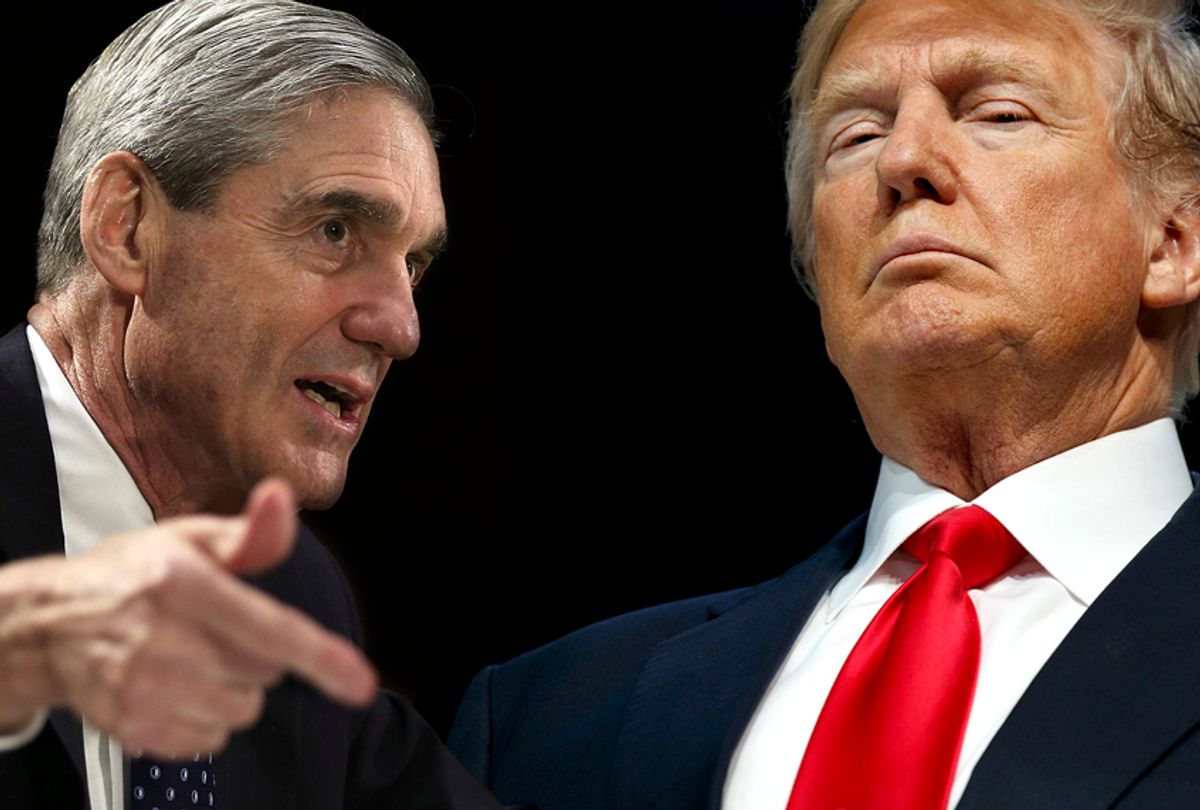Can Trump fire special counsel Robert Mueller? Yes, but at a huge cost to our system, and to Trump’s presidency.
Begin with the law: Justice Department regulations issued in 1999, in the wake of Kenneth Starr’s investigation of Bill Clinton, say that only an Attorney General can remove a special counsel, and not just for any reason. Such a removal must be based on a finding that the special counsel was guilty of “misconduct, dereliction of duty, incapacity, conflict of interest, or for other good cause, including violation of Departmental policies.”
Attorney General Jeff Sessions has recused himself from overseeing the Mueller investigation, so the Deputy Attorney General, Rod Rosenstein, is in charge. If Trump directed Rosenstein to fire Mueller, Rosenstein would have to find “good cause” to remove Mueller, or repeal the Department’s regulation requiring such a finding, and then fire Mueller.
If Rosenstein refused, Trump could fire Rosenstein, and direct the next official in line to fire Mueller. And he could keep firing people down the chain of command until he got someone who would fire Mueller.
Richard Nixon did something like this in what came to be known as the “Saturday Night Massacre,“ ordering Attorney General Elliott Richardson to fire the Watergate Special Prosecutor Archibald Cox. When Richardson refused and resigned in protest, Nixon then ordered Deputy Attorney General William Ruckelshaus to fire Cox. Ruckelshaus also refused, and resigned. Nixon then ordered the Solicitor General, Robert Bork, who was then acting head of the Department, to fire Cox. Bork did the deed.
There’s an alternative open to Trump. He could simply order Attorney General Sessions to repeal the special counsel regulations, and then Trump could fire Mueller himself.
But, as the Nixon saga showed, these routes would be perilous — both for Trump’s presidency and for our system of government, because they would undermine public trust in the impartiality of our system of justice and in the office of the presidency.
They would also further divide the country between Trump supporters who believe the Mueller investigation to be part of a conspiracy to undermine the Trump presidency, and the vast majority of Americans who are more likely to believe, as a result of these actions, that Trump has done something that he wants to hide at all costs.
The question is whether Trump is willing to risk it, nonetheless.



Shares